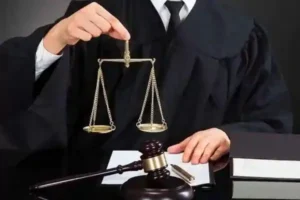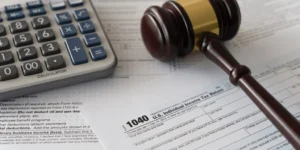Bank Levies and Property Liens: Powerful Tools in Judgment Enforcement

Securing a judgment in court is a significant achievement—but the real challenge often lies in collecting the money you’re owed. Fortunately, creditors have powerful legal tools at their disposal to enforce judgments, including bank levies and property liens. These tools can turn a piece of paper from the court into real financial recovery.
In this blog, we’ll explain how bank levies and property liens work, when and how to use them, and why having a judgment collection attorney on your side can make all the difference.
What Is a Bank Levy?
A bank levy is a legal process that allows a creditor to seize funds directly from a debtor’s bank account. After obtaining a court judgment, the creditor can petition the court to issue a levy order, which is then served to the financial institution.
Once received, the bank is required to:
- Freeze the account up to the amount of the judgment
- Hold the funds temporarily (often for a few days)
- Turn over the funds to the creditor, unless the debtor contests it
Why Use a Bank Levy?
- Fast and direct access to funds
- Hard for debtors to avoid, especially if they didn’t anticipate the action
- Can be used even if other methods (like wage garnishment) fail
However, a bank levy only works if:
- The debtor has funds in the account at the time of the levy
- The account is in their name or jointly owned
- The funds are not protected by exemptions (like certain government benefits)
What Is a Property Lien?
A lien is a legal claim placed on a debtor’s real estate or personal property that prevents them from selling or refinancing without first satisfying the debt. It doesn’t immediately result in payment—but it secures your interest in the debtor’s assets and often leads to eventual recovery.
How It Works:
- You file the judgment with the local county recorder or land records office.
- A lien is placed on any property the debtor owns in that jurisdiction.
- The lien is publicly recorded and appears in title searches.
- If the debtor tries to sell or refinance the property, your lien must be paid off first.
Why Use a Property Lien?
- Passive but powerful—you may get paid months or years later when the debtor wants to sell or refinance.
- Prevents asset transfers—liens make it harder for the debtor to dispose of valuable property.
- Leverage—many debtors will negotiate payment once they realize the lien is blocking their plans.
Liens can be placed on:
- Homes
- Land
- Commercial property
- Vehicles (in some cases)
Bank Levy vs. Property Lien: What’s the Difference?
| Feature | Bank Levy | Property Lien |
| Speed | Fast (usually within days) | Slow (may take months/years to pay off) |
| Effectiveness | Immediate cash if funds are available | Acts as a long-term asset hold |
| Use Case | Debtor has liquid assets (cash in bank) | Debtor owns real property |
| Risk of Debtor Objection | Moderate | Low |
| Requires Renewal | No (one-time action) | Sometimes (depending on the state) |
When Should You Use These Tools?
- Use a bank levy when you know where the debtor banks and believe there’s money available.
- Use a property lien if the debtor owns real estate and you’re willing to wait for a payout.
- In some cases, you can use both simultaneously for maximum pressure.
Debtor Protections and Challenges
Debtors are not without rights. They may:
- Claim exemptions (e.g., Social Security income, disability payments, or a portion of their bank balance)
- Contest the levy in court
- Attempt to discharge the debt in bankruptcy (though not all judgments are dischargeable)
This is why it’s important to follow the process precisely. A judgment collection attorney will ensure compliance with all laws, deadlines, and notice requirements.
Why Hire a Judgment Collection Attorney?
These enforcement tools are legally powerful, but they’re also procedurally complex. A qualified attorney can:
- Identify the debtor’s bank accounts or property
- File the necessary motions and orders
- Serve the proper notices to financial institutions or county offices
- Respond to debtor objections or exemption claims
- Track deadlines for lien renewals and garnishment periods
Without professional help, one misstep could delay collection—or cause your enforcement attempt to be denied entirely.
Conclusion
Bank levies and property liens are two of the most effective judgment enforcement tools available to creditors. Whether you want fast recovery through a bank account or long-term security via a lien on real estate, both options give you legal leverage when the debtor refuses to pay.
If you’re tired of chasing down an unpaid judgment, don’t go it alone. A judgment collection attorney can guide you through the legal process, help you choose the right enforcement method, and ensure you get the money you’re owed—legally and efficiently. We recommend Judgement Collection Attorney.





